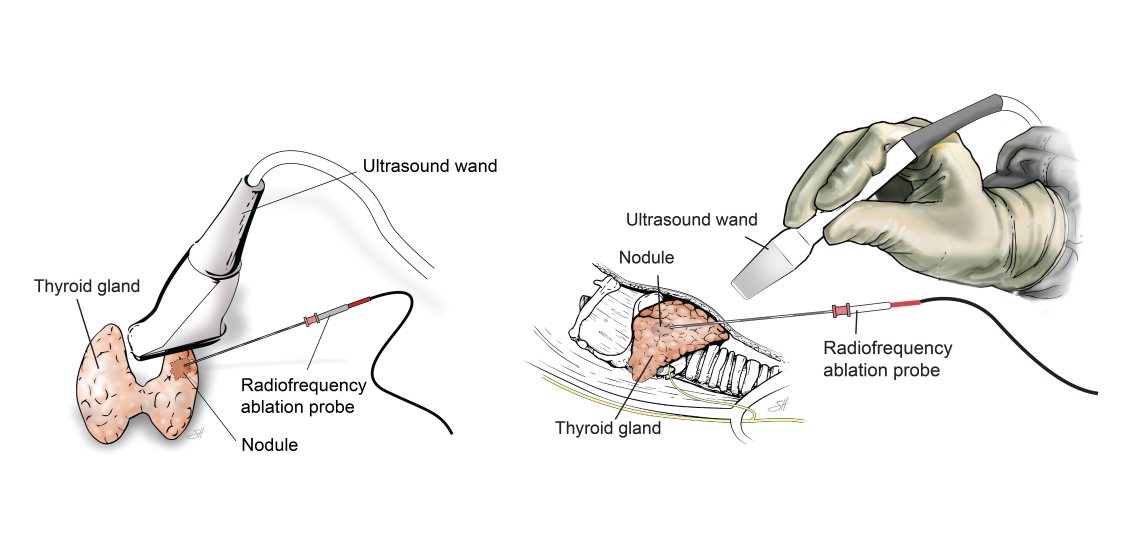What is thyroid radiofrequency ablation (RFA)?
Thyroid RFA is a minimally invasive medical procedure that treats thyroid nodules. Using ultrasound-guided imaging, the nodule is located, allowing the treatment to focus solely on the targeted nodular area. Using a radiofrequency generator, your doctor allows a carefully controlled amount of energy to flow through the electrode into the tissue to ablate the nodule. With the sustained RFA thermal heat, the nodule is degenerated, allowing the degenerated tissue to flow through your body naturally as waste over the course of a few months.
Why choose thyroid RFA?
Thyroid RFA is a minimally invasive, non-surgical treatment for undesirable thyroid nodules. This procedure is a quick and safe option that enables patients to resume normal daily activity with minimal recovery periods.
The term radiofrequency (RF) refers to an alternating electric current oscillating between 200 kHz and 1200 kHz. Application of Radiofrequency agitates tissue ions as they attempt to follow the changes in the direction of the alternating current, thus creating frictional heat around the electrode. Although heat creates immediate damage to the tissue, this is significant only in regions within a few millimeters of the electrode.
Benefits of Thyroid RFA
- Preserves your healthy thyroid tissue
- Allows your thyroid to function normally without the need for a lifetime of medication
- Minimally invasive procedure
- Performed under local anesthesia
- Performed as an out-patient procedure, which means no downtime or hospitalization
- Shorter recovery times
- No scarring
- Nodule volume reduction over time
- Low complication rate
- Quality of life
Risks of Thyroid RFA
All treatments and procedures have risks and these will be discussed in detail with you by your doctor.
Minor complications can include skin burn, hematoma, and vomiting.
Larger nodules may require more than one treatment for effective nodule shrinkage. Your doctor will discuss with you the likelihood of needing additional treatments during your initial assessment.








 Credit
Credit
